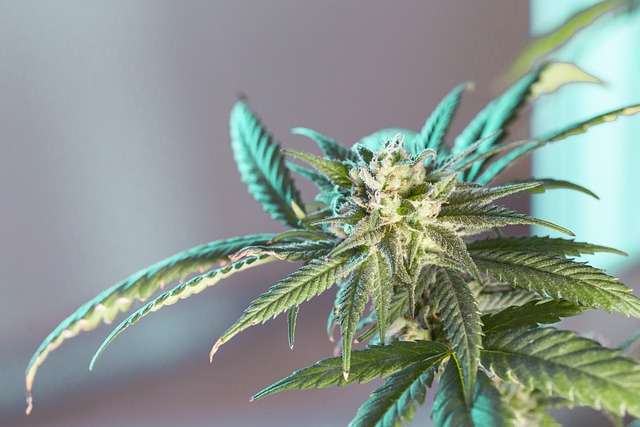In Ohio, THCA (Tetrahydrocannabinolic Acid), a non-psychoactive cannabinoid found in hemp and the precursor to THC, has been recognized for its potential health benefits, which may include anti-inflammatory, neuroprotective, immune system support, pain management, and antiemetic properties. The state's legal framework for THCA flower is aligned with federal regulations under the 2018 Farm Bill, stipulating that hemp-derived products containing less than 0.3% THC are legal. Ohio has its own hemp program and additional regulations on cannabis derivatives. THCA is legally recognized within Ohio's medical cannabis program for therapeutic use by residents. The Ohio Department of Agriculture oversees compliance through licensing and testing, ensuring that THCA products remain within legal limits. As research continues to explore its benefits, particularly in treating neurological disorders and neurodegenerative diseases, THCA is gaining traction as a holistic, natural alternative for health and wellness in Ohio, where it's legally sanctioned under strict regulatory oversight.
Exploring the emerging landscape of health and wellness, this article sheds light on the therapeutic properties and legal status of THCA (Tetrahydrocannabinolic Acid) flower in Ohio. As interest in cannabinoids grows, understanding the benefits and implications of THCA within state regulations becomes increasingly important for consumers and regulators alike. We delve into the regulatory framework governing THCA in Ohio, highlighting its potential health advantages that have sparked a rise in its popularity as a natural wellness remedy. Join us as we navigate the intricacies of THCA legality and explore the multifaceted benefits this compound holds for those within the Buckeye State’s borders.
- Exploring THCA Flower Benefits and Legality in Ohio
- The Rise of THCA in Ohio: Legal Landscape and Health Advantages
- Harnessing the Potential of THCA Flowers: A Deep Dive into Ohio's Regulatory Framework and Wellness Applications
Exploring THCA Flower Benefits and Legality in Ohio

THCA, or tetrahydrocannabinolic acid, is a non-psychoactive cannabinoid found in raw cannabis plants, which, when heated, converts to THC, the primary psychoactive component of cannabis. The interest in THCA stems from its potential health benefits, which are currently the subject of ongoing research. Proponents claim that THCA may offer a range of therapeutic effects, including anti-inflammatory and neuroprotective properties. It’s purported to support the immune system, aid in pain management, and possibly have antiemetic qualities without the intoxicating effects associated with its heated counterpart, THC.
In Ohio, the legal status of THCA flower is nuanced and subject to the state’s evolving cannabis laws. As of the knowledge cutoff date, hemp-derived products containing less than 0.3% THC are legal under the 2018 Farm Bill at the federal level and have been since December 2018. Ohio followed suit with its own hemp program, enabling the cultivation, processing, and sale of hemp and hemp-derived products within state lines. However, it’s crucial for consumers to be aware that state laws can be more restrictive than federal laws, and Ohio has specific regulations regarding cannabis and cannabinoids. The Ohio Revised Code outlines the legalities surrounding the use and possession of cannabis and its derivatives, including THCA flower, which is considered a derivative of cannabis. Therefore, while THCA derived from hemp is technically legal in Ohio, it’s important for individuals to ensure that they are purchasing from reputable sources and staying informed about any changes in state legislation that may impact the legal status of THCA products.
The Rise of THCA in Ohio: Legal Landscape and Health Advantages

Ohio’s legislative evolution has paved the way for THCA, or tetrahydrocannabinolic acid, to emerge as a significant player within its legal landscape. Initially categorized under the state’s medical cannabis program, THCA has garnered attention due to its “thca legal in Ohio” status, allowing residents access to this non-psychoactive compound for therapeutic purposes. As awareness of its potential health advantages grows, Ohioans are increasingly exploring the benefits of THCA flowers, which are precursors to THC and contain higher levels of CBD. These flowers have been credited with a myriad of health advantages, including anti-inflammatory and analgesic properties without the intoxicating effects typically associated with THC. The rise of THCA in Ohio reflects a broader shift towards alternative, plant-based wellness solutions, as consumers seek out natural remedies for chronic pain, anxiety, and various other conditions. The “thca legal in Ohio” framework ensures that patients can legally benefit from these potential advantages, positioning the state at the forefront of cannabinoid research and application.
Harnessing the Potential of THCA Flowers: A Deep Dive into Ohio's Regulatory Framework and Wellness Applications

In Ohio, the emergence of THCA (Tetrahydrocannabinolic Acid) flowers has sparked a wave of interest among wellness enthusiasts and regulatory bodies alike. These non-psychoactive cannabis flowers are rich in THCA, which precursor to THC (Tetrahydrocannabinol), and have been the subject of growing research for their potential health benefits. Understanding the legality of THCA flowers is paramount for consumers and producers within the state’s evolving landscape. As per Ohio’s regulatory framework, THCA flowers are legal provided they contain less than 0.3% delta-9 THC on a dry weight basis, in accordance with the 2018 Farm Bill and subsequent state regulations. Ohio’s Department of Agriculture oversees hemp cultivation, ensuring compliance through licensing and regular testing to maintain the integrity and legality of these products.
The wellness applications of THCA flowers are multifaceted, offering a range of potential benefits without the psychoactive effects associated with THC. Users often harness THCA’s therapeutic properties for conditions such as inflammation, pain, and nausea. The anti-inflammatory and neuroprotective qualities of THCA are also being investigated for their roles in treating neurological disorders and neurodegenerative diseases. Ohio’s wellness-focused approach to hemp products has facilitated the exploration of these benefits, with many local businesses offering THCA flowers as a natural alternative to conventional treatments. As awareness grows and research continues, consumers in Ohio are increasingly turning to THCA flowers as part of their holistic health strategies, backed by a regulatory framework designed to ensure safety and efficacy.
THCA, or tetrahydrocannabinolic acid, has emerged as a subject of growing interest within the wellness community and the legal landscape of Ohio. This article has delved into the multifaceted nature of THCA flower benefits and the evolving regulations surrounding its use. As outlined in our exploration, the legal status of THCA in Ohio presents a unique framework that balances accessibility with public health and safety considerations. The potential therapeutic properties of THCA flowers offer a promising alternative for individuals seeking natural relief from various conditions, aligning with the state’s progressive approach to cannabis-related legislation. In light of this, it is clear that THCA legal in Ohio represents a significant step forward in the realm of wellness and regulatory reform, paving the way for further research and innovation. As the understanding and use of THCA continue to expand, it is imperative for policymakers and consumers alike to remain informed and engaged with the latest scientific findings and legal developments.
